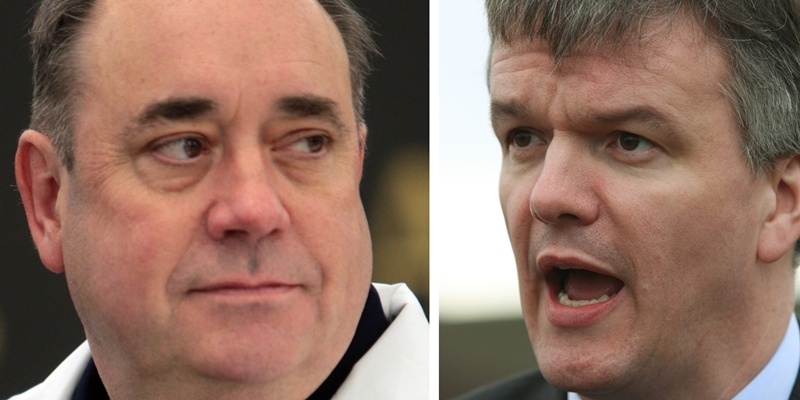Scottish Secretary Michael Moore is to demand Alex Salmond “gets on with the job” of First Minister and stops lobbying for more powers.
The Liberal Democrat MP will signal a hardening of tactics against the SNP in a major speech to the David Hume Institute in Edinburgh on Wednesday.
He will accuse the First Minister of “lacking interest” in the powers devolved to Holyrood and “being obsessed” with the ones reserved to Westminster.
The strong rhetoric comes amid increasing concern among unionists that the unpopularity of the Tory/Lib Dem coalition at Westminster could lead more Scots to vote for independence in the upcoming referendum.
Mr Moore will defend the “legitimacy” of the coalition in Scotland, pointing out the Tories and Lib Dems received more votes in Scotland in the 2010 UK election than the SNP received in the Scottish Parliament regional list.
And, in an apparent admission that the UK Government has been slow to address nationalism’s increasing popularity, he will defend the treatment of Scotland and outline the benefits of devolution.
Mr Moore will say: “There is an insidious narrative in which the Scottish Government is portrayed as standing up for Scotland’s interests by standing against the UK Government.
“So let me be very clear about something which UK ministers have been perhaps too slow or considered it unnecessary to point out. Scotland has two governments distinct, elected and legitimate. Each takes decisions in the interests of Scotland, in light of their respective powers and their democratic mandate.”
The SNP stormed to a historic majority in May’s Holyrood poll, meaning they are now able to force legislation through the Scottish Parliament. But the first few months of the new administration have seen the SNP pushing for further powers in areas such as corporation tax, the Crown Estate, digital broadcasting and excise duty.
Mr Moore will insist the SNP should focus on “bread and butter” issues such as hospitals, schools, justice and transport, over which they already have responsibility.
He will say: “They should get on with the job. Yet, all too often, their minds appear to be focused on other things particularly if those things are happening south of the border.
“The First Minister’s concentration on them leaves the impression that Scottish Ministers lack interest in the powers they do have while being obsessed with powers they don’t have.”
Mr Moore will add that he is “looking forward” to Mr Salmond’s statement on the government’s programme for the coming year, scheduled for when Holyrood returns from the summer recess next week.
“I hope that it will map out a serious course of action, using the Scottish Parliament’s current powers to improve the lives of people throughout our country.
“Scotland’s two governments should acknowledge one another’s legitimacy, respect one another’s mandates, and ensure that they fulfil those mandates to the best of their abilities. The Scottish people expect nothing less.”
But the tone of Mr Moore’s remarks were criticised by SNP deputy chief whip Graeme Dey.
The Angus South MSP said: “Lib Dems must be deeply disappointed every time they hear Michael Moore parroting Tory lines. The more Michael Moore stands against the ambitions of the Scottish people the more harm he does to his party.”
Mr Salmond has said the independence referendum, which was a key pledge of the SNP manifesto, will take place in the second half of this parliamentary term.
